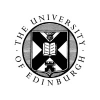Snabbfakta
-
- Midlothian
Ansök senast: 2024-12-20
Postdoctoral Research Associate
The Opportunity:
The Edinburgh group has significant responsibilities in ATLAS and LHCb detector R&D and construction. We are well-integrated in the ECFA detector R&D (DRD) collaborations in three working groups (DRD2, DRD3, and DRD4). We are looking to expand effort on fast photon detectors, silicon detectors using HV-CMOS, small-pitch LGAD detectors, scintillation light LAr detectors for future particle physics experiments and potential wider use cases such as in medical imaging. Our Advanced Detector Development Centre has a 55 m2 ISO-7 clean room (containing a 10 m2 ISO-6 Clean Room enclosure) with the state-of-the-art detector characterisation facilities.
This post is supported by two research grants on HL-LHC upgrade, including the ATLAS Inner Tracker (ITk) construction and LHCb Mighty Tracker and RICH Upgrade II.
• You will spend about one third of your research time on the ATLAS ITk Pixel EndCap construction. You will join our ATLAS team to develop automated pixel module and service qualification control procedures and lead the relevant effort during the ITk construction.
• You will spend the remaining two thirds working on novel detector R&D and prototyping for the LHCb upgrade II and related DRD activities, in two complementary areas including the HV-CMOS silicon pixel detector (Mighty Tracker) and fast photon detector exploring Large Area Picosecond Photon Detector (LAPPD) and High-Rate Picosecond Photo-Detector (HRPPD).
You will collaborate with partners the University of Edinburgh including students and staff from other universities and contacts from non-academic stakeholders. You will be encouraged to develop new links.
This post is full-time (35 hours per week),however, we are open to considering part-time or flexible working patterns. The post is fixed term for 3 years.
The School of Physics and Astronomy at the University of Edinburgh is committed to encouraging equality and diversity among our workforce, and eliminating discrimination.
The School strives to create a more diverse, equitable and inclusive workplace for all and we are looking to actively diversify our staff. We welcome applications from all qualified candidates and in particular encourage applications from people of colour, women, people with disabilities, LGBTQ+ people and other minority and under-represented groups. We aim to ensure that our culture and systems support flexible and family-friendly working, as evidenced by our Juno Champion and Athena SWAN Silver awards.
Your skills and attributes for success:












